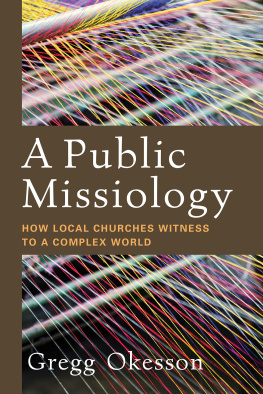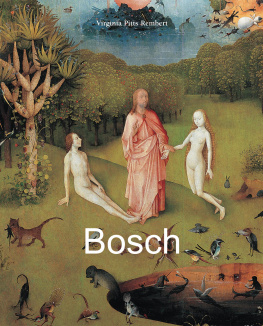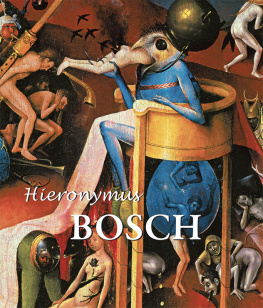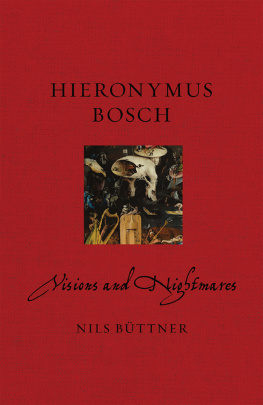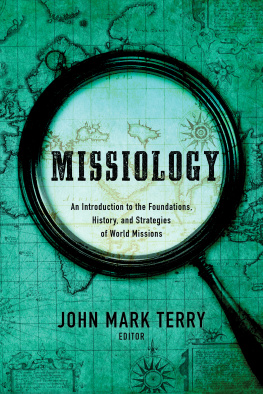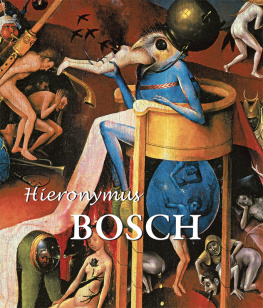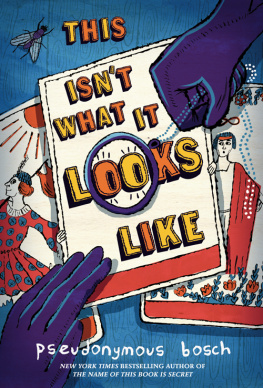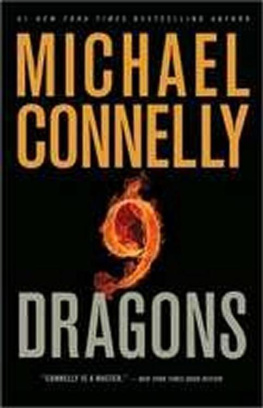David J. Bosch - Believing in the Future - Toward a Missiology of the Western Culture
Here you can read online David J. Bosch - Believing in the Future - Toward a Missiology of the Western Culture full text of the book (entire story) in english for free. Download pdf and epub, get meaning, cover and reviews about this ebook. City: Harrisburg, year: 1995, publisher: Trinity Press, genre: Religion. Description of the work, (preface) as well as reviews are available. Best literature library LitArk.com created for fans of good reading and offers a wide selection of genres:
Romance novel
Science fiction
Adventure
Detective
Science
History
Home and family
Prose
Art
Politics
Computer
Non-fiction
Religion
Business
Children
Humor
Choose a favorite category and find really read worthwhile books. Enjoy immersion in the world of imagination, feel the emotions of the characters or learn something new for yourself, make an fascinating discovery.
- Book:Believing in the Future - Toward a Missiology of the Western Culture
- Author:
- Publisher:Trinity Press
- Genre:
- Year:1995
- City:Harrisburg
- Rating:3 / 5
- Favourites:Add to favourites
- Your mark:
- 60
- 1
- 2
- 3
- 4
- 5
Believing in the Future - Toward a Missiology of the Western Culture: summary, description and annotation
We offer to read an annotation, description, summary or preface (depends on what the author of the book "Believing in the Future - Toward a Missiology of the Western Culture" wrote himself). If you haven't found the necessary information about the book — write in the comments, we will try to find it.
Believing in the Future - Toward a Missiology of the Western Culture — read online for free the complete book (whole text) full work
Below is the text of the book, divided by pages. System saving the place of the last page read, allows you to conveniently read the book "Believing in the Future - Toward a Missiology of the Western Culture" online for free, without having to search again every time where you left off. Put a bookmark, and you can go to the page where you finished reading at any time.
Font size:
Interval:
Bookmark:
Believing
IN THE
Future
Christian Mission and Modern Culture
Edited By
Alan Neely, H. Wayne Pipkin,
and Wilbert R. Shenk
In the series:
Believing in the Future, by David J. Bosch
Write the Vision, by Wilbert R. Shenk
Believing
IN THE
Future
Toward a Missiology of
Western Culture
DAVID J. BOSCH
TRINITY PRESS INTERNATIONAL
Harrisburg, Pennsylvania
First U.S. edition First British edition
published 1995 by published 1995 by
TRINITY PRESS INTERNATIONAL GRACEWING
P.O. Box 1321 2 Southern Avenue
Harrisburg, PA 17105 Leominster
U.S.A. Herefordshire HR6 OQF
England
Trinity Press International is a division of The Morehouse Group.
All rights reserved. No part of this book may be reproduced, stored in a retrieval system, or transmitted, in any form or by any means, electronic, mechanical, photocopying, recording, or otherwise, without the written permission of the publisher, Trinity Press International.
Copyright 1995 Anne-Marie Bosch
Cover design: Brian Preuss
Library of Congress Cataloging-in-Publication Data
Bosch, David Jacobus.
Believing in the future : toward a missiology of Western culture /
David J. Bosch. 1st ed.
p. cm. (Christian mission and modern culture)
Includes bibliographical references.
ISBN 1-56338-117-6 (Trinity Press)
ISBN 0-85244-333-1 (Gracewing)
1. Missions Theory. 2. Christianity and culture. 3. Missions History. 4. Mission of the church. I. Title. II. Series.
BV2063.B648 1995
Preface to the Series
Both Christian mission and modern culture, widely regarded as antagonists, are in crisis. The emergence of the modern mission movement in the early nineteenth century cannot be understood apart from the rise of technocratic society. Now, at the end of the twentieth century, both modern culture and Christian mission face an uncertain future.
One of the developments integral to modernity was the way the role of religion in culture was redefined. Whereas religion had played an authoritative role in the culture of Christendom, modern culture was highly critical of religion and increasingly secular in its assumptions. A sustained effort was made to banish religion to the backwaters of modern culture.
The decade of the 1980s witnessed further momentous developments on the geopolitical front with the collapse of communism. In the aftermath of the breakup of the system of power blocs that dominated international relations for a generation, it is clear that religion has survived even if its institutionalization has undergone deep change and its future forms are unclear. Secularism continues to oppose religion, while technology has emerged as a major source of power and authority in modern culture. Both confront Christian faith with fundamental questions.
The purpose of this series is to probe these developments from a variety of angles with a view to helping the church understand its missional responsibility to a culture in crisis. One important resource is the churchs experience of two centuries of cross-cultural mission that has reshaped the church into a global Christian ecumene. The focus of our inquiry will be the church in modern culture. The series (1) examines modern/postmodern culture from a missional point of view; (2) develops the theological agenda that the church in modern culture must address in order to recover its own integrity; and (3) tests fresh conceptualizations of the nature and mission of the church as it engages modern culture. In other words, these volumes are intended to be a forum where conventional assumptions can be challenged and alternative formulations explored.
This series is a project authorized by the Institute of Mennonite Studies, research agency of the Associated Mennonite Biblical Seminary, and supported by a generous grant from the Pew Charitable Trusts.
Editorial Committee
Alan Neely
H. Wayne Pipkin
Wilbert R. Shenk
Foreword
This volume by David J. Bosch was written in late 1991 in the form of an essay and was presented by him to a group that met in Paris in January 1992 to discuss what steps we might take to develop a missiology of Western culture. In accepting the invitation to participate in the meeting, Bosch indicated that he was feeling a moral obligation to turn his attention to this theme. Although he had only recently completed the writing of his massive work Transforming Mission (Orbis Books, 1991), he recognized that he had not yet truly engaged the challenge of modern culture to the gospel. And he sensed this to be a priority concern for our day. Before leaving Paris we discussed possible publication of the essay, and he proposed the title it now bears.
David Boschs tragic death in an automobile accident April 15, 1992, has left all of us who have known him as a friend, colleague, outstanding mission theologian, and church statesman with a sense of irreparable loss. He combined in his life and ministry first-rate scholarship and devoted Christian discipleship. His loyalty to his native land, South Africa, seemed to be intensified precisely by a personal integrity that required that he live out what he understood the gospel to entail. David Bosch knew existentially, and to a degree most of us never reach, what it means to live and work against the stream of culture to be countercultural. He was the prophet among us.
Along with his vast knowledge of the field of biblical studies, theology, church history, and missiology, David Bosch had the rare ability to distill the insight and wisdom to meet the demands of the day. His broad sympathies with all parts of the Christian family and his gifts of communication made him a trusted and respected friend wherever he went.
Appreciation is expressed to Mrs. Anne-Marie Bosch for her cooperation in the publication of this volume.
Wilbert R. Shenk
The Postmodern World
We live in the post- era. Since 1958, when Michael Polanyi presented his plea for the development of a postcritical and postmodern philosophy, the term has been used with increasing frequency. Daniel Bell (1973) and Alain Touraine (1977:155-66) talk about a postindustrial society. Jrgen Habermas (1988) like many before him, though in a different manner defends the idea of a postmetaphysical age. Harvey Cox (1984) makes a case for a postmodern theology, as do several authors in a volume edited by Hans Kng and David Tracy and published in the same year. And in a more recent book, Kng depicts the contemporary world as post-Eurocentric, postcolonial, postimperial, postsocialist, postindustrial, postpatriarchal, postideological, and postconfessional (Kng, 1990:40f).
The post- phenomenon is not just a fad. We have truly entered into an epoch fundamentally at variance with anything we have experienced to date. Likewise, there can be no doubt that the new situation is confronting the Christian church with unprecedented challenges. It will be impossible to draw the contours of the new epoch within the confines of this volume. A few generalizations, acting in a sense as pars pro toto, will have to suffice.
The dominant characteristics of the contemporary world are its thoroughgoing secular nature and its radical anthropocentricity. And even if Kng calls it post-Eurocentric, it is still a world in which the West calls the shots much more so, in fact, after the Gulf War, the collapse of communism, and the demise of the Soviet Union. Even so, the confidence of the 1960s and early 1970s is gone, not only in the Second and Third Worlds, but also in the First. For approximately a decade and a half an unbridled optimism had taken hold of the world and, for that matter, of the Christian church. This was true of mainline Protestantism (think, in this respect, of the 1966 Church and Society Conference in Geneva and the 1968 assembly of the World Council of Churches in Uppsala), of evangelicalism, which experienced a rapid upsurge in this period (compare, for instance, the conferences in Wheaton and Berlin, both in 1966, and the Lausanne Conference of 1974), and of Roman Catholicism, which experienced a massive renewal and
Next pageFont size:
Interval:
Bookmark:
Similar books «Believing in the Future - Toward a Missiology of the Western Culture»
Look at similar books to Believing in the Future - Toward a Missiology of the Western Culture. We have selected literature similar in name and meaning in the hope of providing readers with more options to find new, interesting, not yet read works.
Discussion, reviews of the book Believing in the Future - Toward a Missiology of the Western Culture and just readers' own opinions. Leave your comments, write what you think about the work, its meaning or the main characters. Specify what exactly you liked and what you didn't like, and why you think so.

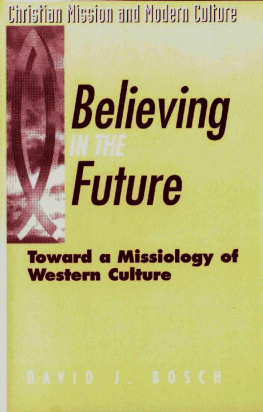
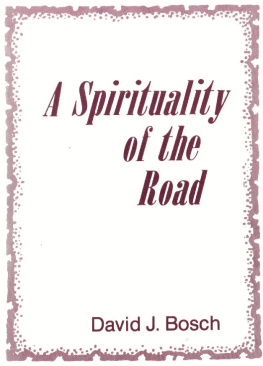
![Majkl Konnelli - The Night Fire [Harry Bosch - 22]](/uploads/posts/book/873181/thumbs/majkl-konnelli-the-night-fire-harry-bosch-22.jpg)
